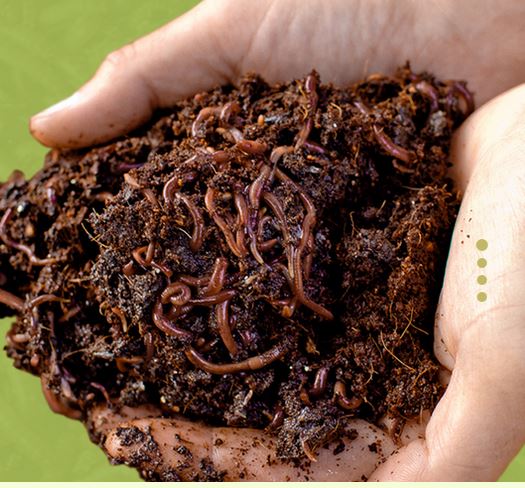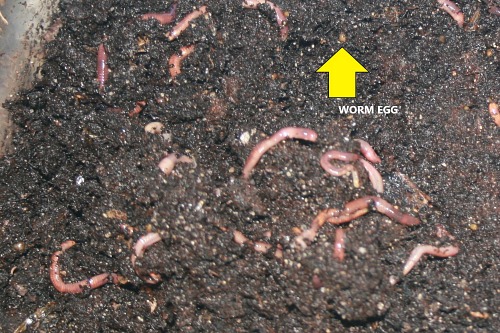Red Wiggler Worms - Vital for Healthy and Efficient Gardens
Red Wiggler Worms - Vital for Healthy and Efficient Gardens
Blog Article
Red Wiggler Worms Demystified: Unlocking the Tricks of Vermiculture for Greener Living and Nutrient-Rich Soil
In the realm of sustainable methods for enhancing soil quality and promoting eco-conscious living, red wiggler worms play a pivotal yet often forgotten role. Red Wiggler Worms. Understanding the details of caring for these worms, optimizing their setting, and utilizing their spreadings can lead to a greener way of life and much healthier soil for plants to grow.
The Role of Red Wiggler Worms
Red Wiggler worms play an important duty in composting systems by successfully damaging down natural matter right into nutrient-rich spreadings. These starved eaters eat a variety of natural materials, such as cooking area scraps, backyard waste, and paper products. As they feed, the worms' digestion processes break down the raw material into a penalty, dark, and nutrient-dense product called worm spreadings or vermicompost.
The castings generated by Red Wiggler worms are very beneficial for dirt wellness and plant growth. They are rich in vital nutrients like nitrogen, potassium, and phosphorus, which are vital for sustaining healthy and balanced plant growth. Furthermore, worm castings contain advantageous microorganisms and enzymes that aid boost soil structure, rise water retention, and improve nutrient uptake by plants.
Advantages of Vermicomposting

It boosts soil framework, improves soil oygenation, and enhances soil wetness retention. Vermicompost likewise improves the soil with essential nutrients like potassium, nitrogen, and phosphorus, promoting plant development and general dirt fertility.
Additionally, vermicomposting supports lasting horticulture techniques by offering a all-natural and chemical-free option to synthetic plant foods. Red Wiggler Worms. This eco-friendly approach not only enhances the dirt but also helps lower reliance on harmful chemicals, advertising a greener and a lot more sustainable means of gardening
Establishing a Worm Container
When developing a worm container for vermicomposting, proper setup is important to make sure the success click resources of the composting process. The first action in establishing up a worm bin is selecting an ideal container.
After adding the bed linen, present the red wiggler worms to the bin. It is suggested to start with Recommended Site a handful of worms and gradually raise as they increase. The worms need to then be provided with food scraps such as fruit and vegetable peels, coffee grounds, and eggshells. It is important to avoid including meat, dairy, oily, or salty foods to stop drawing in insects and producing undesirable odors.
Frequently keep an eye on the moisture degrees and temperature in the worm bin to ensure ideal conditions for the worms. With appropriate arrangement and upkeep, the worm container will successfully convert organic waste into nutrient-rich compost for your plants and yard.
Harvesting Worm Spreadings
To efficiently gather nutrient-rich worm spreadings from your vermicomposting system, an organized harvesting technique is necessary. When it comes time to collect the worm spreadings, there are a couple of crucial steps to comply with to make sure an effective procedure.

Troubleshooting Common Issues
Identifying and addressing usual challenges that may develop throughout the vermicomposting process is vital for preserving a efficient and healthy worm container. Adding excess food scraps can lead to an accumulation of dampness and level of acidity in the worm container, possibly harming the worms. An additional issue is undesirable odors originating from the worm bin.
In addition, if the worm populace is decreasing or the worms appear undesirable, it might be due to ecological stress factors such Continue as severe temperatures or pH levels. Keeping track of these elements and making required changes is necessary for the wellness of the worms. By troubleshooting these usual problems immediately, vermicomposters can guarantee a smooth and effective vermicomposting process while preserving a flourishing worm populace.

Verdict
To conclude, red wiggler worms play a critical role in vermiculture by breaking down organic issue into nutrient-rich soil. The advantages of vermiculture include greener living and boosted soil high quality. Establishing a worm bin is important for successful vermiculture, and gathering worm castings provides valuable compost for gardening. By comprehending and repairing usual issues, people can unlock the tricks of vermiculture for sustainable living and much healthier dirt.
As they feed, the worms' digestive processes break down the organic matter into a fine, dark, and nutrient-dense product recognized as worm spreadings or vermicompost.
The castings created by Red Wiggler worms are very beneficial for dirt wellness and plant development. Including excess food scraps can lead to an accumulation of moisture and level of acidity in the worm container, possibly damaging the worms.In addition, if the worm population is decreasing or the worms appear undesirable, it might be due to ecological stress factors such as severe temperatures or pH levels. Establishing up a worm bin is necessary for effective vermiculture, and gathering worm castings supplies important compost for horticulture.
Report this page